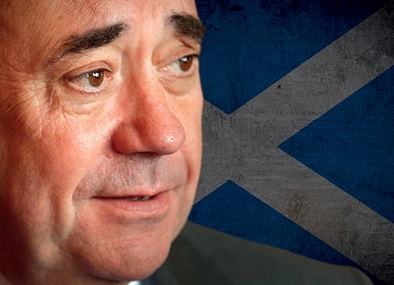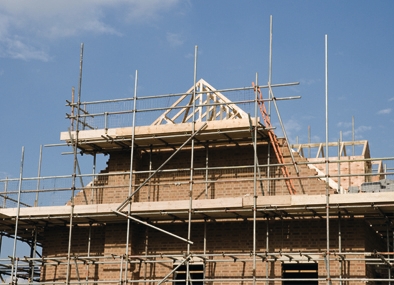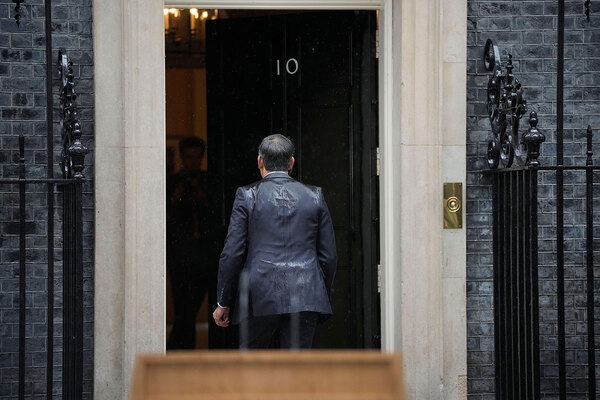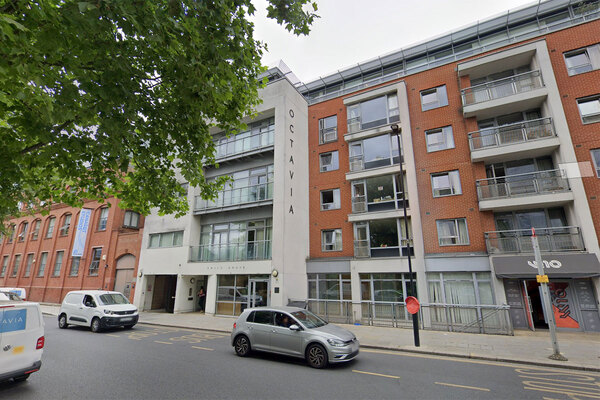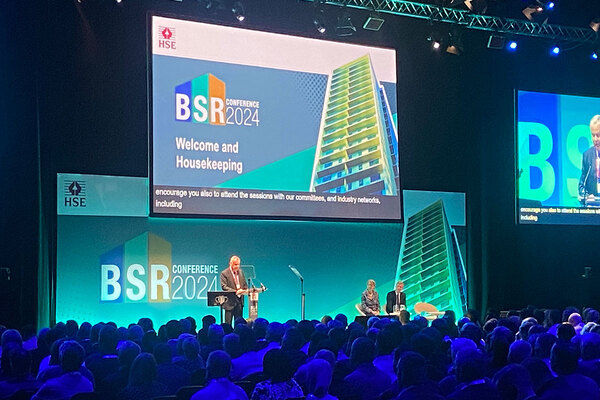You are viewing 1 of your 1 free articles
The fate of independence
On 18 September, Scotland will decide on whether to strike out alone and become an independent country for the first time since 1707. The ‘yes’ campaign has promised that voting to leave the UK will open a ‘new era’ for the nation. But what would Scottish independence mean for housing? Heather Spurr finds out

Welfare reform: bedroom tax reversal
Under an independent Scotland, the country would establish an entirely new social security system.
Experts predict that the bedroom tax will be the first policy to be reversed and the government’s white paper pledges to halt the rollout of universal credit. The Department for Work and Pensions estimates that the potential changes in an independent Scotland would increase the country’s social security bill by around £1.55bn in 20 years’ time.
An important document for anyone examining the likely future of benefits in Scotland is a report from the expert working group set up by the Scottish government to offer views for change under independence.
The group recommends the introduction of a new ‘social security allowance’ (SSA), which would bring together several existing benefits, but crucially would not include housing benefit. This would mean social landlords could feel more secure about their rent getting paid.
Professor Ken Gibb, housing professor at Glasgow University, says such an allowance would ‘keep the cashflow similar to what [landlords] have at the moment’. This in turn could give more security to lenders previously anxious about housing associations’ incomes as a result of welfare reform.
The expert working group, which has received substantial support from Scottish ministers, also recommends the ending of the work programme and for work capability assessments to
be scrapped.
It is worth noting that last month it was announced that the Conservatives, Labour and the Liberal Democrats all pledged to devolve more housing benefit powers to Scotland if it rejects independence. However, a few weeks later, Mary Taylor, chief executive of the Scottish Federation of Housing Associations, threw doubt over whether there was a ‘real appetite’ from the unionist parties to devolve more power.
Construction and government grant: full flexibility

Source: Shutterstock
Because housing is devolved to Scotland, the level of government grant that goes towards construction is already set by Scottish ministers.
Therefore, it could be expected that little would change in the event of a ‘yes’ vote.
However, the Scottish National Party’s (SNP) white paper - an official document that outlines what the independent country would look like - says: ‘Full flexibility over our budgets will enable future Scottish governments to broaden action to make more affordable housing available to meet housing need.’
Although Scotland will be given the historic power to raise bonds from 2015, the SNP says the devolution settlement places significant constraints on the government’s freedom to borrow and invest in housing.
Professor Gibb says that the new bond-raising powers are ‘restricted’ and adds that an independent Scotland would be able to have far wider borrowing freedoms.
‘That’s a potentially important change for infrastructure, for housing,’ he says.
But he warns that additional powers would not necessarily mean a big house building programme.
‘It doesn’t follow that there would be a massive increase in housing [the government has to increase house building].’
Keith Anderson, chief executive of Port of Leith Housing Association, is worried that investment in housing could slip down the political agenda as the country becomes pre-occupied with larger, constitutional questions.
‘My anxiety is that the interests of housing and the housing system get crowded out by bigger, more complex issues,’ he says.
Private finance: uncertainty prevails
More news about the Scottish referendum
Social landlords and investors have expressed concern about uncertainty over the referendum spooking the capital markets.
David Ogilvie, head of policy and public affairs at the Charted Institute of Housing Scotland, is aware that some capital market investors have ‘indicated an understandable desire to hold off making any commitments until the referendum is out of the way’.
Yet the housing sector agrees that uncertainty would not disappear with a ‘yes’ vote. A senior figure at a well-known investment management firm, who declines to be named, says doubt over whether Scotland will maintain a currency union with the UK is a key issue for investors.
‘In the same way as UK landlords borrow money from the US, it is possible to do deals in a different currency, but it has additional complications,’ he says. Indeed, Brian Gilmour, managing director of bond aggregator Carduus says investors have warned landlords could have to pay an additional 0.5% on the interest of loans in the event of a ‘yes’ vote.
But Gordon Campbell, director of financial advisory company Campbell & Thompson Associates, reports that none of the investors he has spoken to say they will not provide finance in an independent Scotland. In any case, he adds, there is evidence to suggest investing in England could be just as risky.
‘If you invest in England, you don’t have that constitutional uncertainty,’ he says.
‘But you do have higher risks because there’s less subsidy. And the deals are bigger, so there’s a greater concentration of risk.’
Sustainability: radical reform of energy market?

The Scottish government currently sets standards on the energy efficiency of social homes. However, decisions on issues such as regulation and the Energy Company Obligations for fuel companies to pay for energy efficiency works in poorer households (ECO) are reserved to Westminster.
There is some evidence to suggest that Alex Salmond wants an independent Scotland to become a world leader in energy efficiency. The independence white paper pledges support for energy efficiency and the rollout of green technology from government budgets to reduce energy bills by around 5%.
This commitment from the independence camp will please social landlords, many of whom are tied up in energy efficiency programmes and fuel poverty reduction schemes. Scottish landlords have expressed concern about the viability of their programmes since the coalition announced in December it was to cut back the £1.3bn ECO fund.
However, promises from the SNP are vague on what would change for the funding of green schemes if Scotland votes ‘yes’. The white paper says that independence would enable regulation to be tailored to specific Scottish conditions, such as the climate and ‘distinctive housing stock’.
Maureen Watson, head of policy at the Scottish Federation of Housing Associations, says: ‘Post-referendum, whatever the outcome, there is potential to radically alter the regulation of the energy markets in Scotland. This could bring reduced fuel tariffs, increased resources to invest in renewables, and scope for initiatives around the collective generation and affordable supply of energy.’
